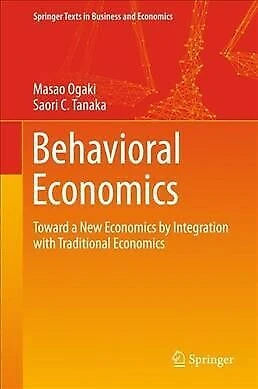Behavioral Economics – Toward a New Economics by Integration with Traditional Economics

Blurb
This book is intended as a textbook for a course in behavioural economics for advanced undergraduate and graduate students who have already learned basic economics. The book will also be useful for introducing behavioural economics to researchers. Unlike some general audience books that discuss behavioural economics, this book does not take a position of completely negating traditional economics. Its position is that both behavioural and traditional economics are tools that have their own uses and limitations. Moreover, this work makes clear that knowledge of traditional economics is a necessary basis to fully understand behavioural economics.Book summary
Where is the difference between neuroeconomics, cultural and identity economics, economics of happiness, and behavioural economics? This book will tell you. Neuroeconomics, which is developing fast partly because of technological progress, seeks to understand how the workings of our minds affect our economic decision making. In addition to a full chapter on neuroeconomics, the book provides explanations of findings in neuroeconomics in chapters on prospect theory (a major decision theory of behavioural economics under uncertainty), intertemporal economic behaviour, and social preferences (preferences that exhibit concerns for others). Cultural and identity economics seek to explain how cultures and people’s identities affect economic behaviour, and economics of happiness utilizes measures of subjective wellbeing. There is also a full chapter on behavioural normative economics, which evaluates economic policies based on findings and theories of behavioral economics.
Comment from our editors:
A useful book for a course in behavioral economics for advanced undergraduate and graduate students and presenting behavioral economics to researchers.

